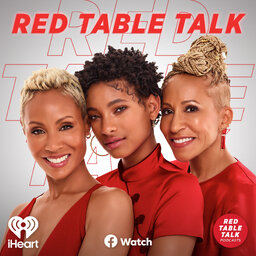No Hair, No Problem (Alopecia recap)
Do you have hair privilege? Cara and Tracy discuss theirs with the Red Table Talk community on this episode of Let’s Red Table That. They’re recapping the red hot Red Table Talk episode about alopecia with guests Kula Voncille and Jerrica Jackson. Kula lost her hair at age 15, but it all grew back years later thanks to her doctor discovering the underlying cause. Jerrica found a love of custom wigs because of her alopecia, and now she makes them for others.
Hosts Information:
Cara Pressley
@thecareercheerleader Cara’s Instagram
@TheCareerCheerleader Cara’s Facebook
@the1cheering4U Cara’s Twitter
@FeelinSuccessful Cara’s TikTok
Cara’s Website
Tracy T. Rowe
@tracytrowe Tracy’s Instagram
@troweandco Tracy’s Facebook
@tracytrowe Tracy’s Twitter
@tracytrowe Tracy’s TikTok
Tracy’s Website
----
#LRTT
Listening and loving the show? Please be sure to rate and review.
Have a question you want us to discuss on Let’s Red Table That? Email us at: letsredtablethat@redtabletalk.com
-----
LET’S RED TABLE THAT is produced by Red Table Talk Podcasts. EXECUTIVE PRODUCERS Jada Pinkett Smith, Fallon Jethroe and Ellen Rakieten. PRODUCER Kyla Carneiro. ASSOCIATE PRODUCER Yolanda Chow. EDITORS AND AUDIO MIXERS Calvin Bailiff and Devin Donaghy. PHOTOGRAPHY Lee Salter Creative Firm. MUSIC from Epidemic Sound. LET’S RED TABLE THAT is in partnership with iHeartRadio.
In 1 playlist(s)
Red Table Talk
Join Jada Pinkett-Smith, her daughter Willow Smith and mother Adrienne Banfield-Norris as they open …Social links
Follow podcast
Recent clips

Jay Shetty Reveals His Highly Anticipated Rules of Love
36:13

AN RTT SPECIAL EVENT: A DIFFERENT WORLD REUNION
43:30

How to Find and Keep a Healthy Relationship
45:52
 Red Table Talk
Red Table Talk